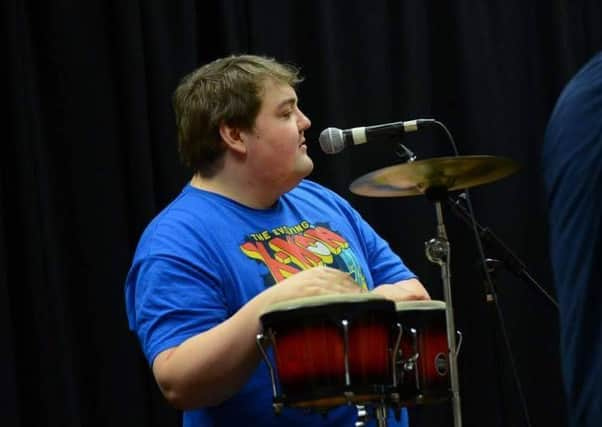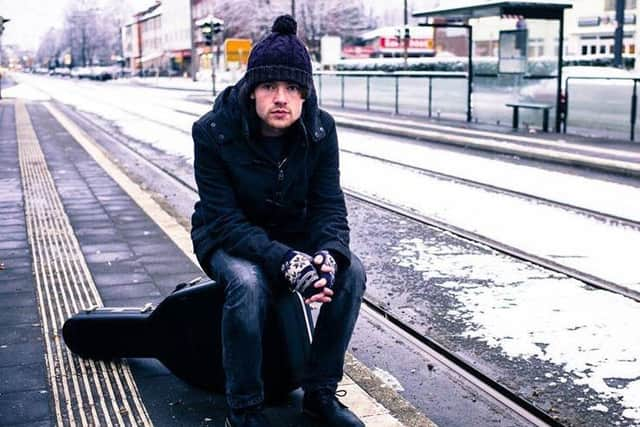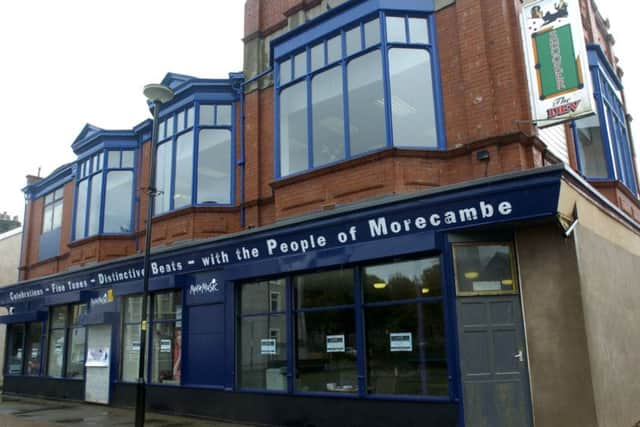The musicians who are opening up about their battles with depression


David Walker is planning an event early next year for people to get together and talk about mental health issues, and says that music can be a big positive in helping to manage them.
David, 28, who is a percussionist with Lancaster band Carpe, says he finds himself uneasy in most social situations and worries about what people think of him after a conversation in the street - so much so that he will often avoid further meetings.
Advertisement
Hide AdAdvertisement
Hide AdDavid said that the Stages Live project at More Music in Morecambe had been a major factor in helping him to regain confidence skills.


He said: “I’ve always suffered with some form of depression and anxiety, starting from school onwards, as long as I’ve known what it was really.
“Some people are able to talk about their issues, and at least try to express the things they’re facing, but for every one of those, there’s a hundred more that don’t have art or music to fall back on.
“I’ve had times that I’ve not been able to get out of the house on the off chance I’ll bump into someone I haven’t seen for years, but I remember the last experience we had together, and it will freak me out.
Advertisement
Hide AdAdvertisement
Hide Ad“We had a conversation, I mis-spoke - the longer I leave it, the harder it gets.


“That’s every conversation for me, all the time.”
David said that writing and performing music provides a much needed distraction from the struggles created in his mind.
Morecambe singer-songwriter Joe McCorriston says he too knows all about “the battle against yourself”.
Joe, 22, who has just released his latest album, said: “There are so many false assumptions with depression and anxiety.


Advertisement
Hide AdAdvertisement
Hide Ad“You’ll come off stage and people will say you’re talking crap about it.
“People will think, ‘what have you got to be depressed about’?
“There’s a lot of ignorance - a lot of people are ignorant to what it is and how it can affect you, but it’s a chemical imbalance in the brain.
“I’m lucky because over the last two years I’ve been surrounded by great people.


Advertisement
Hide AdAdvertisement
Hide Ad“It’s a stigma and we need to get rid of that stigma because it’s an incredibly huge thing.
“The good thing is we’re talking about it more.
“The internet has a lot to do with this. A lot of postings on social media and the like has opened people’s eyes to it.
celebrities
“Celebrities opening up has also helped. But it can also have a negative effect. It can lure people into thinking it’s a trend, a trendy thing to be depressed - like you have to feel a certain way to be part of a club.
“People cutting themselves and then posting pictures, or the hashtag #depressionandanxiety on Twitter.
Advertisement
Hide AdAdvertisement
Hide Ad“For me, it’s a battle against yourself, it’s all in your head, a caricature of yourself.”
Joe said his issues weren’t about what other people thought of him, but about how he perceived himself.
He added: “One of my main worries was my health. Feeling a twitch in my body and thinking ‘I’m having a heart attack’.
“Recently I’ve been eating healthily and doing a lot of exercise, which has resulted in me getting bigger and better gigs.
Advertisement
Hide AdAdvertisement
Hide Ad“You’ve got to start with little changes. People can get tarred with the crazy brush. That’s why so many people are scared about opening up.
“Everyone who’s gone through some form of it, more often than not suffer without talking to anyone, and it comes out in other ways.”
David said joining Stages at More Music in Morecambe helped “because it was like a mask you could put on to become a different person”.
“When you’re performing, you’re not necessarily the same person as you are off the stage,” he said.
Advertisement
Hide AdAdvertisement
Hide Ad“You don’t have the time or space to think about your own troubles, so it’s a really good distraction, even the act of practicing and writing songs.”
David said anxiety can be isolating and lonely, and conversely, he finds it difficult to empathise with others.
He said: “I’ve been on and off various medications and treatments for different sides of it.
“When I was first diagnosed, they focus on trying to treat the depression, but this numbs you and closes you off, and that was not good for me artistically, so I came off those and found other ways to cope –with support networks, friends and staff at More Music, and by channeling those feelings into the creative process.
Advertisement
Hide AdAdvertisement
Hide Ad“I’m on one drug now and that’s anti-anxiety to help me sleep.
“I can’t switch off, and I still end up on social media at 4am!
“Most of the musicians I know or have worked with present this outward confidence and open persona, but then they worry - music is very emotionally challenging.
Taboo
“It’s only by speaking out that you realise what is actually going on.
Advertisement
Hide AdAdvertisement
Hide Ad“There’s a taboo about it, because no-one wants to be seen as moaning, or weak.
“It should be normal to talk about how you are feeling, but it’s just not for some reason.”
Rachel Parsons, from Stages Live, said: “We have a hell of a lot of young people with mental health issues that come to Stages and much of our work is focused on supporting people with anxiety issues and aiming to develop confidence and self esteem through music, particularly songwriting and performance as they can be very cathartic acts.”
David said the event, which is likely to be held at The Bobbin pub, will raise money for charities that help people who are suffering from anxiety issues.
Advertisement
Hide AdAdvertisement
Hide AdHe said: “Anyone who is performing, I’ll encourage them to talk about their own issues, as much as they’re confortable with, or write something collaboratively.
There’s still this idea that it’s not a medical condition.
“I’m hoping this will encourage people to be honest about their issues, and let others know that they’re not alone.
“It’s a very lonely world when you’ve got anxiety issues.”